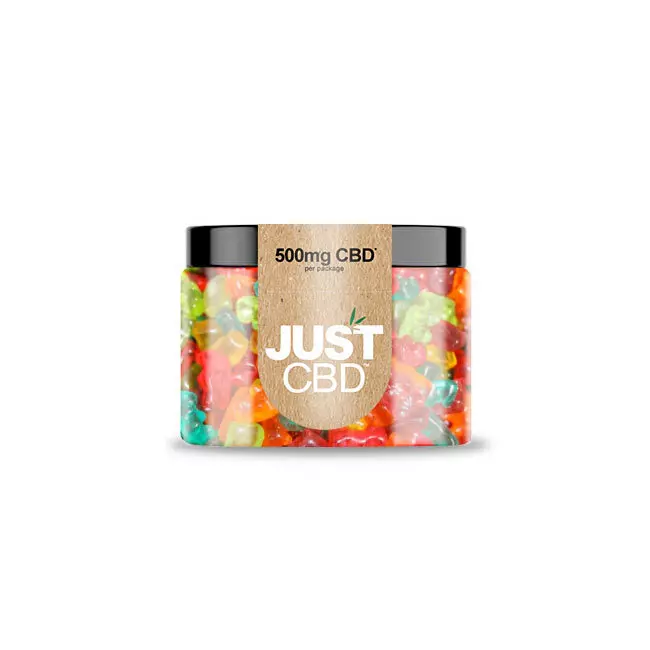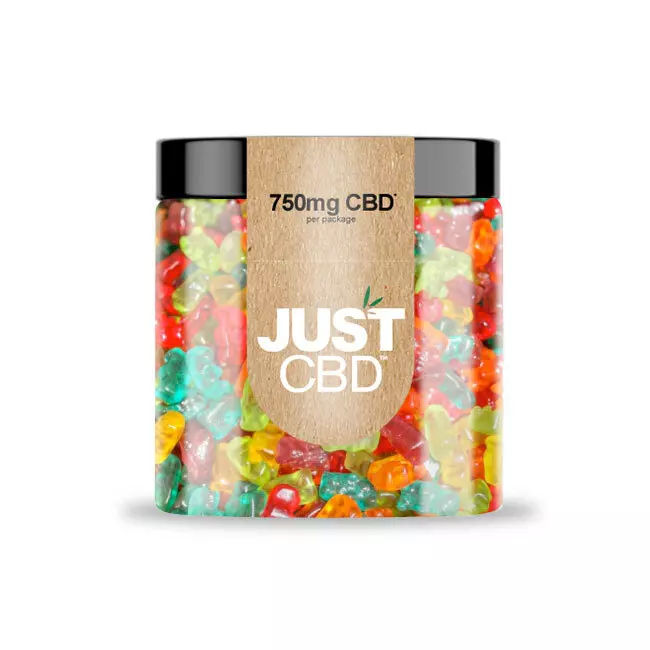Potential Effects on Anxiety
Anxiety disorders are among the most common mental health challenges, impacting millions worldwide. These conditions often manifest as excessive worry, fear, and nervousness, significantly affecting daily life.
CBD’s Interaction with the Endocannabinoid System
CBD’s potential to alleviate anxiety stems from its interaction with the endocannabinoid system (ECS), a complex network of receptors and neurotransmitters found throughout the body. The ECS plays a crucial role in regulating various physiological processes, including mood, sleep, and stress response. CBD is thought to bind to specific receptors within the ECS, influencing the production and activity of neurochemicals like serotonin and dopamine, which are known to impact anxiety levels.
Studies on CBD and Anxiety Reduction
Numerous studies have explored the potential benefits of CBD for reducing anxiety symptoms.
- A 2015 study published in the journal “Neurotherapeutics” found that CBD reduced anxiety-like behavior in humans during a simulated public speaking test.
- Another study, published in “Psychopharmacology” in 2019, showed that CBD significantly decreased anxiety in individuals with social anxiety disorder.
- Research suggests that CBD may be particularly effective for managing social anxiety and generalized anxiety disorder.
Types of Anxiety CBD May Help With
While research on CBD’s effects on anxiety is ongoing, existing studies suggest promising potential benefits.
CBD appears to interact with the endocannabinoid system (ECS), a complex network involved in regulating mood and stress response. By influencing neurochemicals like serotonin and dopamine, CBD may help alleviate anxiety symptoms.
Studies indicate that CBD could be beneficial for various types of anxiety, including social anxiety disorder, generalized anxiety disorder, and panic disorder.
Impact on Mood Disorders
Mood disorders, encompassing a wide range of conditions such as depression, anxiety, and bipolar disorder, profoundly impact individuals’ emotional well-being and overall quality of life. These disorders are characterized by persistent feelings of sadness, hopelessness, fear, or irritability, often accompanied by changes in sleep patterns, appetite, energy levels, and concentration.
CBD and Depression Symptoms
CBD has garnered attention for its potential to alleviate symptoms of depression. Depression is a complex mental health condition characterized by prolonged periods of low mood, loss of interest, feelings of worthlessness, and other debilitating symptoms. The exact mechanisms underlying CBD’s antidepressant effects are still being investigated, but research suggests it may influence neurotransmitter systems involved in mood regulation.
Studies have shown that CBD may help reduce depressive symptoms in some individuals. For example, a 2019 study published in the journal “JAMA Psychiatry” found that CBD was associated with significant improvements in depressive symptoms in patients with major depressive disorder.
It is important to note that CBD should not be considered a standalone treatment for depression. It may be most effective when used as part of a comprehensive treatment plan that includes therapy, lifestyle changes, and potentially other medications.
Research Findings on CBD for Mood Regulation
CBD’s impact on mood disorders is an area of growing research interest, with promising findings suggesting potential benefits in managing symptoms of anxiety and depression.
- CBD may interact with the endocannabinoid system (ECS), which plays a role in regulating mood and stress response. By influencing neurotransmitters like serotonin and dopamine, CBD could potentially alleviate anxiety symptoms.
- Research suggests that CBD might be particularly effective for social anxiety disorder and generalized anxiety disorder.
- Studies have shown that CBD may reduce depressive symptoms in some individuals, although it should not be considered a standalone treatment for depression and is best used as part of a comprehensive treatment plan.
Considerations for Individualized Treatment
While research on CBD’s effects on mood disorders is promising, it is crucial to consider the importance of individualized treatment approaches. What works for one person may not be effective for another. Factors such as the specific type and severity of the mood disorder, individual physiology, other medications being taken, and lifestyle factors can all influence how CBD might affect a person.
Consulting with a qualified healthcare professional is essential before incorporating CBD into a treatment plan. They can help determine if CBD is appropriate, recommend a suitable dosage, and monitor for any potential interactions or side effects. Open communication with a doctor about medical history, current medications, and desired outcomes is vital to ensure safe and effective use of CBD for managing mood disorders.
Benefits for Sleep Quality
A good night’s sleep is fundamental to our overall well-being. During sleep, our bodies repair tissues, consolidate memories, and release essential hormones. However, many individuals struggle with sleep quality, experiencing difficulties falling asleep, staying asleep, or achieving restful sleep.
CBD’s Influence on Sleep-Wake Cycles

CBD’s influence on sleep-wake cycles is a complex area of study, but emerging research suggests potential benefits for improving sleep quality.
CBD may interact with the endocannabinoid system (ECS), which plays a role in regulating sleep-wake rhythms. By influencing neurotransmitters involved in sleep and wakefulness, CBD could potentially promote relaxation and improve sleep onset latency (the time it takes to fall asleep).
Some studies have indicated that CBD might help reduce insomnia symptoms and improve sleep duration.
However, more research is needed to fully understand the mechanisms by which CBD affects sleep and to determine optimal dosages for promoting restful sleep.
Potential Relief from Insomnia
CBD may offer benefits for sleep quality and potentially provide relief from insomnia.
While research in this area is ongoing, some studies suggest that CBD might interact with the endocannabinoid system (ECS), which plays a role in regulating sleep-wake cycles. By influencing neurotransmitters involved in sleep and wakefulness, CBD could potentially promote relaxation and improve sleep onset latency.
Some individuals find that CBD helps them fall asleep faster and experience deeper, more restful sleep. However, it’s important to note that individual responses to CBD can vary, and more research is needed to fully understand its effects on sleep and determine optimal dosages.
Factors Affecting CBD’s Sleep-Promoting Effects
CBD’s potential benefits for sleep quality are linked to its interaction with the endocannabinoid system (ECS), which plays a role in regulating sleep-wake cycles. Some studies suggest that CBD may influence neurotransmitters involved in sleep and wakefulness, potentially promoting relaxation and improving sleep onset latency.
Factors affecting CBD’s sleep-promoting effects include individual differences in ECS function, dosage, administration method (e.g., ingestion, inhalation), and the presence of other medications or substances.
Addressing Trauma and PTSD
Addressing trauma and PTSD is crucial for the well-being of those who have experienced these distressing events.
Preliminary Research on CBD and Trauma Response
Preliminary research suggests that CBD may offer some potential benefits in managing symptoms associated with trauma and PTSD. While more comprehensive studies are needed, existing research indicates that CBD’s interaction with the endocannabinoid system (ECS) could play a role in reducing anxiety, promoting relaxation, and potentially alleviating distressing memories or flashbacks commonly experienced by individuals with PTSD.
Some small-scale studies have explored the effects of CBD on PTSD symptoms, reporting reductions in anxiety, insomnia, and hypervigilance. However, it is essential to acknowledge that these studies are limited in size and scope, and further research is necessary to confirm these findings and establish effective dosages and treatment protocols.
While CBD shows promise as a potential adjunct therapy for PTSD, it should not be considered a replacement for traditional treatments such as psychotherapy and medication prescribed by qualified healthcare professionals. A comprehensive approach that addresses both the psychological and physiological aspects of trauma is crucial for effective recovery.
Mechanisms of Action in PTSD Treatment
Trauma and PTSD can have a profound impact on an individual’s life, causing enduring emotional distress, cognitive difficulties, and behavioral changes. The mechanisms of action behind PTSD treatment aim to address these multifaceted symptoms and promote healing.
A cornerstone of PTSD treatment is psychotherapy, particularly trauma-focused therapies like Cognitive Processing Therapy (CPT) and Prolonged Exposure Therapy (PE). These therapies help individuals process traumatic memories in a safe and controlled environment, challenge negative thoughts and beliefs associated with the trauma, and develop coping mechanisms to manage distressing symptoms.
Medication can also play a role in managing PTSD symptoms. Selective Serotonin Reuptake Inhibitors (SSRIs) and serotonin-norepinephrine reuptake inhibitors (SNRIs) are commonly prescribed antidepressants that can help alleviate anxiety, depression, and intrusive thoughts.
In some cases, medication may also be used to address specific symptoms such as nightmares or sleep disturbances.
Emerging research is exploring the potential of alternative treatments for PTSD, including cannabidiol (CBD). CBD, a non-psychoactive compound found in cannabis, interacts with the endocannabinoid system, which plays a role in regulating mood, anxiety, and pain perception. Preliminary studies suggest that CBD may help reduce anxiety and improve sleep quality in individuals with PTSD, but more research is needed to confirm these findings.
Importance of Professional Guidance

Addressing trauma and PTSD is a complex process that often requires professional guidance. While self-help strategies can be beneficial, working with qualified mental health professionals like therapists or psychiatrists is crucial for effective healing and recovery.
These professionals possess the expertise to assess the severity of trauma, diagnose PTSD, and develop personalized treatment plans tailored to individual needs. They provide a safe and supportive space for individuals to process their experiences, manage distressing symptoms, and develop coping mechanisms.
Therapy plays a central role in PTSD treatment, with evidence-based approaches such as Cognitive Processing Therapy (CPT) and Prolonged Exposure Therapy (PE) demonstrating effectiveness in reducing symptoms. These therapies help individuals understand and challenge negative thought patterns associated with the trauma, process their experiences in a structured manner, and gradually confront feared situations.
Medication can also be an important component of PTSD treatment, particularly for managing anxiety, depression, and insomnia. A mental health professional can determine if medication is appropriate and prescribe the most suitable options based on individual needs and medical history.
Beyond therapy and medication, support groups and peer counseling can provide valuable emotional support and a sense of community for individuals navigating the challenges of PTSD. Connecting with others who understand their experiences can be empowering and foster healing.
Navigating Legality and Safety
Understanding the potential benefits of CBD gummies for mental health is becoming increasingly important as research sheds light on this compound’s effects.
CBD Legal Status and Regulations
Navigating the legal landscape surrounding CBD can be complex, as regulations vary significantly across jurisdictions. In some countries, CBD is completely legal, while in others it may be restricted or require a prescription.
To ensure compliance with local laws, it’s essential to research and understand the specific regulations governing CBD products in your area. Look for reputable brands that provide clear labeling about their product’s origin, extraction methods, and potency. Third-party lab testing can help verify the quality and safety of CBD products.
When considering the use of CBD gummies for mental health purposes, consulting with a healthcare professional is crucial. They can assess your individual needs, potential interactions with medications you may be taking, and provide guidance on appropriate dosage and usage.
Dosage Considerations and Potential Side Effects
Navigating legality and safety when using CBD gummies for mental health is essential. It’s crucial to research the legal status of CBD in your region as regulations vary widely. Opt for reputable brands that offer transparent labeling about sourcing, extraction methods, and potency. Third-party lab testing can help verify product quality and safety.
Before incorporating CBD gummies into your routine, consult a healthcare professional. They can assess your individual needs, potential interactions with medications, and recommend an appropriate dosage and usage plan.
Remember that CBD should not be considered a standalone treatment for any mental health condition. It is often most effective as part of a comprehensive treatment approach that may include therapy, lifestyle changes, and other medications prescribed by a qualified healthcare provider.
Choosing Reputable Brands and Products
Understanding the potential benefits of CBD gummies for mental health is becoming increasingly important as research sheds light on this compound’s effects.
Navigating the legal landscape surrounding CBD can be complex, as regulations vary significantly across jurisdictions. In some countries, CBD is completely legal, while in others it may be restricted or require a prescription.
To ensure compliance with local laws, it’s essential to research and understand the specific regulations governing CBD products in your area. Look for reputable brands that provide clear labeling about their product’s origin, extraction methods, and potency. Third-party lab testing can help verify the quality and safety of CBD products.
When considering the use of CBD gummies for mental health purposes, consulting with a healthcare professional is crucial. They can assess your individual needs, potential interactions with medications you may be taking, and provide guidance on appropriate dosage and usage.
Remember that CBD should not be considered a standalone treatment for any mental health condition. It is often most effective as part of a comprehensive treatment approach that may include therapy, lifestyle changes, and other medications prescribed by a qualified healthcare provider.
Best CBD Gummies by Just CBD UK
Grab chill cbd gummy sweets at JustCBD
Discover their full take
Explore this take completely
- Which Is The Best Non Surgical Face Lift? - June 1, 2025
- Thc Infused Seltzers In Michigan MI - May 30, 2025
- Why Ghosting Is Harmful To Both Parties In A Relationship - May 29, 2025
